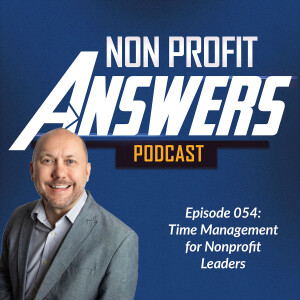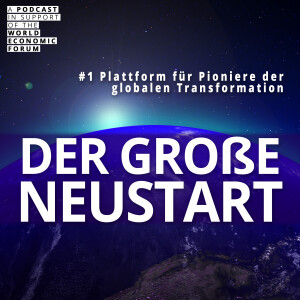

054 - Time Management for Nonprofit Leaders
Nonprofit leaders often find themselves working 60+ hour weeks, constantly reactive to urgent demands, and struggling to balance operational fires with strategic priorities. Unlike corporate environments, nonprofit work presents unique challenges where everything feels both urgent and mission-critical - from serving people in need to cultivating donors to supporting staff.
Key InsightTraditional time management advice fails in nonprofit settings because it assumes you can simply say "no" to less important activities. In nonprofit work, distinguishing what's truly less important is difficult when dealing with human needs, donor relationships, and community impact. The solution isn't working faster - it's developing systems for ruthless prioritization and strategic delegation.
Seven Time Management Strategies for Nonprofit Leaders 1. Mission-Impact MatrixReplace traditional urgent/important categorization with a system that evaluates activities based on:
- High Mission Impact + High Organizational Impact: Strategic planning, major donor cultivation (gets prime time)
- High Mission Impact + Low Organizational Impact: Direct service delivery (delegate when possible)
- Low Mission Impact + High Organizational Impact: Systems development (often overlooked but crucial)
- Low Mission Impact + Low Organizational Impact: Administrative tasks (minimize or eliminate)
Schedule unmovable time blocks for strategic activities rather than treating them as optional add-ons. Block specific times weekly for donor cultivation, strategic planning, or staff development, and protect these blocks from interruptions except genuine emergencies.
3. Systematic DelegationEffective delegation requires:
- Documenting processes and decision-making criteria
- Providing initial training and ongoing support
- Establishing clear quality standards and checkpoints
- Creating feedback loops and accountability measures
Group similar activities together to reduce mental energy lost in task-switching:
- Batch all donor calls into specific time blocks
- Process emails at designated times only
- Schedule similar meetings back-to-back
- Block uninterrupted time for writing projects
Reserve perfectionism for truly critical activities (major donor proposals, strategic planning) while accepting "good enough" for less critical tasks (meeting minutes, newsletter layouts, routine communications).
6. Buffer TimeSchedule only 70-80% of your time, leaving 20-30% buffer for inevitable interruptions, emergencies, follow-ups, and relationship-building conversations.
7. "Stop Doing" ListsRegularly audit and eliminate activities that no longer serve your mission:
- Unnecessary meetings
- Unused reports
- Outdated processes
- Misaligned commitments
An executive director reduced her work week from 65 to 45 hours while improving organizational performance by implementing these strategies, leading to increased donor retention, improved staff morale, and stronger board relationships.
Immediate Action Steps- Audit current weekly schedule using the Mission-Impact Matrix
- Protect 5-10 hours weekly for strategic activities
- Choose 2-3 operational responsibilities to delegate with proper systems
- Eliminate 2-3 low-impact activities
The goal isn't working less hard, but working more strategically to create maximum mission impact while building long-term organizational sustainability.
More Episodes
All Episodes>>Create Your Podcast In Minutes
- Full-featured podcast site
- Unlimited storage and bandwidth
- Comprehensive podcast stats
- Distribute to Apple Podcasts, Spotify, and more
- Make money with your podcast












